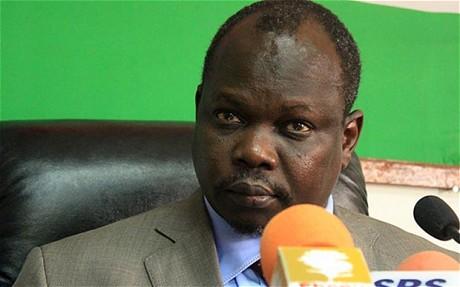Violence and the Sudanese Islamists
Abdullahi Gallab’s book The First Islamist Republic is rich in conceptualization and historical perspective, and there are a few major themes that run through it. I will address one of them – violence.
Gallab refers to violence as verbal as well as physical. Various political groups have, since Sudan’s independence and especially since the October Revolution of 1964, shown little compunction about resorting to inflammatory rhetoric, coercion and military coup to gain power and secure advantage over rivals. (Such a pervasive political culture of violence is, of course, not unique to Islamists nor to Sudan.) Despite short-lived alliances of convenience, there seemed to be little common ground as the parties used epithets of sectarianism, backwardness, godlessness and fanaticism to define their rivals. This discourse also prevailed at centers of higher learning, and in particular the University of Khartoum, where confrontations between leftists and Islamists competing for control of student government led even to physical attacks and killings. Ironically, the “Islamist republic” established in 1989 reduced the campus violence by suppressing a lone center of independent political debate. Over the decades, the violence of political acrimony during the brief periods of parliamentary rule alternated with the coercive violence of authoritarian military regimes – each of which, as Gallab points out, was aided and abetted by one of the civilian parties.
A fundamental aspect of political violence was, in Gallab’s words, the “social zoning of the Other,” the “systematic process of marginalization of the Other,” stemming from the experience of Egyptian and Anglo-Egyptian colonialism (and, even earlier, the kingdoms of Sinnar and Darfur). On one level it marginalized non-Muslim peoples in the south, those who were “enslaveable,” and on another all regions outside the northern riverain Sudan, including Darfur. The relationship between north and south, and between the northern Nile valley and the rest of the country, has remained the dominating factor of Sudanese politics through half a century and numerous regime changes. In this context the issue of an Islamic state and the implementation of the Shari’a became complex and ambiguous. The alienation and violence born of “othering” reached a climax when, in the 1990s, the civil war was explicitly proclaimed by the state media to be jihad in the path of God and country. Criteria of inclusion and exclusion were clearly delineated.
Decades of resorting to violence and coercion to solve political problems eventually contributed to the militarization of society as represented by anti-government armed movements, by state-supported tribal militias, and by the Popular Defense Forces (PDF) – with terrible consequences for civilians and the integrity of the nation-state.
Gallab playfully alludes to Hasan al-Turabi, the Islamist leader, as a “second Mahdi” with a PhD from the Sorbonne. The “first” Mahdi led a strong Sudanese reaction to the oppression of Egyptian rule though he and his successor had a difficult time dealing with factionalism and the resentment of riverain peoples over the domination of westerners from Darfur and Kordofan. Moreover the state excluded non-Muslims. Al-Turabi is a very different figure and Gallab notes that he did not link the Islamist movement with Sudanese religious history, emphasizing that Sudanese Islamism is quintessentially modern. This fit in with al-Turabi’s criticism of ulama and sufis, and of the “House of Khatmiyyah and the House of the Mahdi,” as backwards-looking, divisive and corrupt. Gallab recounts how the Islamist movement drew heavily, in an organizational and operational sense, from the Communist Party and the capitalist corporation. Using the resources of the ideological vanguard, a disciplined and hierarchical organization, and the wealth derived from Islamic banking and other businesses, it could, after taking power through the military coup of 1989, attempt to impose from above what Gallab describes as a totalitarian order. The violence continued.







